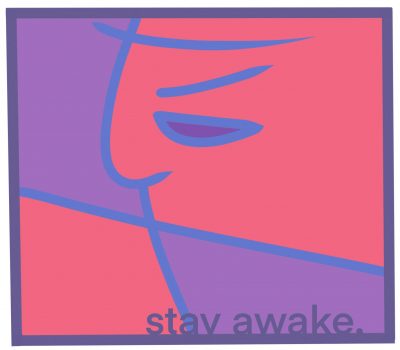“Early to bed and early to rise makes a man healthy, wealthy and wise.”
This proverb reflects a sentiment we were fed as children: Seize the day, and seize it before noon. Rarely has anyone been advised to seize the night.
Evolutionarily, there is a reason for this. Without the sun, productivity and mood drop significantly.
Our society and our culture are built on these archaic rules, dating back to a non-digital era when farming required us to wake up at the first cock-a-doodle-doo and when candles made burning the midnight oil quite impractical.
So, if you start your day at 6 a.m., you may be perceived as more productive than the person ending their day at 2 a.m.
Sure, there may be some health benefits to waking up earlier. You’ll be less likely to blow off breakfast, which is always said to be the most important meal of the day. You’ll also have more time in the sun, whereas those who wake up later may feel they have missed half the day.
Studies have also shown morning people may be happier and have more time for exercise, though the former may be attributed to how society’s work days are structured.

But for the most part, those who wake up late and stay up late are put at a distinct disadvantage. American society is built to benefit the early birds — as evidenced by the 9-to-5 system everything is structured around.
And there’s a definite negative stigma surrounding staying up late. The assumption is you partied or procrastinated and started your work late, and this harmful stereotype calls your work ethic and character into question.
It’s time we changed this mindset.
For one, it all comes down to genetics. People are built differently, and we have little say over our internal clocks, our chronotypes and when our melatonin is released. Our clocks don’t just determine when we get sleepy. They also determine when we perform our best — cognitively and physically.
Some jobs also dictate your sleep schedule for you. Night shifts, for example, are becoming increasingly more common in American culture, but are still not as popular. These jobs made up over three percent of the workforce in 2019, but they throw you off-sync with everyone else in the world and force you to play catch up.
Journalists, for example, are almost always on call to cover breaking news, which does not follow the traditional 9-to-5.
Furthermore, everyone has individual energy levels and backgrounds to consider. Those who are chronically tired or have insomnia may have trouble falling asleep in the first place, much less waking up early after a restless night.
So staying up late is unavoidable for some. This is especially true during the pandemic, which has brought on virtual learning and work, as well as a lack of structure throughout the day.
Zoom drains our energy and causes fatigue, the blue light from our screens we stare at all day disrupts our circadian rhythm and working at home makes the mental separation between work and rest harder to distinguish.
We college students are also constantly “on,” which makes falling asleep or resting especially hard even when we have the time.
On the other hand, for college students at least, staying up late is often glorified. There’s an underlying toxic competition between students: Who’s working the hardest? Who stayed up the latest? Who got the least amount of sleep, or no sleep at all?
Even before the pandemic, there was this culture — the suffering Olympics. Combined with the never-ending cycle of work, there was no incentive to correct our sleep schedules.
During the pandemic, though, more students may become academics-induced night owls. International students or those in different time zones may be forced to take classes late into the night, essentially corrupting their sleep schedule for the year.
And because Boston University and other institutions cancelled Spring Recess, there is also no time for students to physically or mentally catch up. Students have no space to recover, especially if you’re utterly burnt out.
The root of all this is the idea that our value as human beings is reliant on the work we do and our productivity. It doesn’t help when students have GPAs and literal numbers to categorize their success and worth.
Health has consistently been overlooked in American culture. We are encouraged, if not trained, to prioritize our work over the essentials: food, sleep, water and self care.
As such, we need a serious re-evaluation and shifting of our cultural priorities. We must also destigmatize staying up late while being careful not to romanticize it. Otherwise, we risk enabling a cycle of staying up late and waking up early — i.e., not getting enough sleep.
With the emergence of Zoom, the hustle and bustle culture has been preserved. But it also gives us the opportunity to carry it forward into the post-pandemic world, for a more personalized and flexible work-life balance for night owls.
Some people who force themselves to get up early might be in it for the productivity aesthetics, but it doesn’t mean they’re better than you. And staying up all night every day of the week isn’t healthy, even if that’s when you work best.
As individuals and students, we shouldn’t compare ourselves to others because everyone works and functions differently.




















































































































